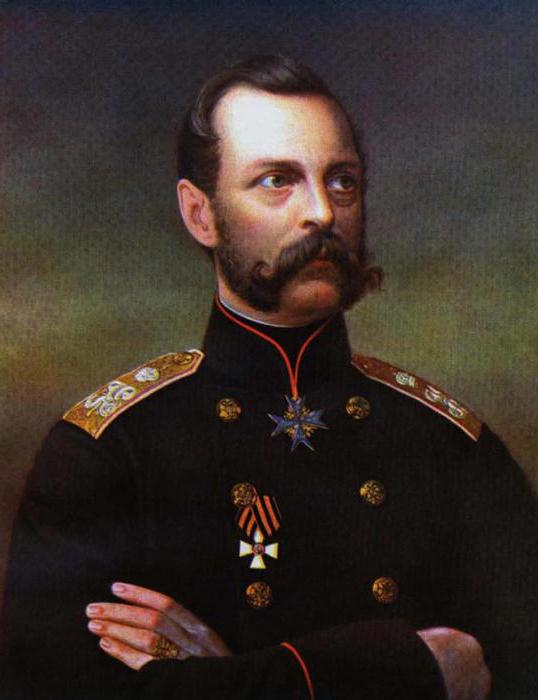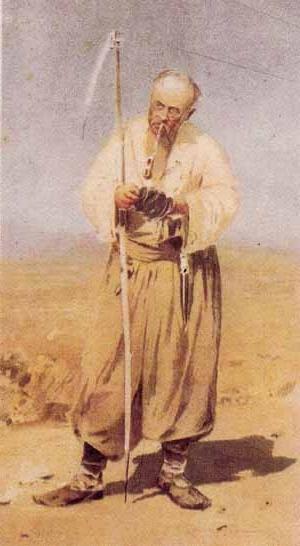The era of Alexander II is known for its global reforms, affecting all aspects of public life in Russia. No exception and military service.
Reform project
The reform fell on the shoulders of the Minister of War DmitryMilutin. Earl and Field Marshal proposed a bill that completely changed the conscription system. The reform took place in 1874. In the course of it, the state completely abandoned the outdated and ineffective Peter system of conscription.
The abolition of recruitment led touniversal conscription. Now the entire male population of Russia, at the age of 21, was to serve in the army. Disappeared exceptions on a social basis. Representatives of all classes were to serve for 6 years, after which another 9 years they were in reserve in case of war.
In addition, the militia was organized.It was composed of already served in the regular army. The tenure in the militia was 40 years. The abolition of recruitment duties also introduced changes concerning members of families with a small number of children. If the parents had one son, he was not drafted into the army. The same rule affected the sole breadwinners in the family if the father died and the little brothers and sisters remained in the house. One way or another, but the fate of the recruit in disputable situations was decided individually.

Privileges
In the case of a difficult financial situation andlack of money in the family the young man was given a delay of two years. Could go to serve later, and those who had health problems. This determined the commission. There was also a system in which men with an education could receive a shorter service life. If the conscript graduated from elementary school, he should have remained in the army for 4 years; city school - for 3 years; received a higher education - and a half years. There were benefits for those who went to serve voluntarily, after graduating from university. In this case, the service life was reduced by half.

Call ethnic minorities
The abolition of recruitment duties includedseparate amendments relating to the recruitment of indigenous peoples of remote regions of the empire. The population of the Caucasus, as well as Central Asia, was not subject to military service. On the contrary, such benefits were canceled for the Siberian peoples and ethnic minorities of the northern provinces. Before the abolition of recruitment, they did not serve in the army.
Caucasians (mostly Muslims)should have paid a special tax. As planned by the reformers, he compensated for their absence in the army. This amendment concerned Kalmyks, Nogais, Chechens, Kurds, Yezidis, etc. The situation with the Ossetians was exceptional. Part of this people professed Orthodoxy, the other half - Islam. Muslim Ossetians served as Christians, but in the army they were on preferential terms. Due to such privates Terek Cossack army was replenished. Such was the abolition of recruitment. Alexander 1 at one time tried to carry out a similar reform, focusing on the interests of the population in the new lands of the empire. Nevertheless, changes occurred only with his namesake nephew.

Territorial features
For the convenience of recruiting army territoryThe Russian Empire was divided into three zones. The first was called Great Russian: in it the Russian population made up more than 75% of the total number of inhabitants. The second was the non-ethnic zone where indigenous ethnic minorities lived. The third area - malorossky. Here were not only Russians, but also Ukrainians and Belarusians.
Abolition of recruitment and transfer toVsesosovnoy conscription marked a new system of recruiting regiments. Now each army detachment was composed only of conscripts of a certain territorial unit, for example, a county. The exception to this rule was engineering, cavalry, and also small guardsmen. All these changes included the abolition of recruitment duties. Who canceled the old system, you now know: Alexander II. He wanted to make the army more efficient. This was due to a painful defeat in the Crimean War, after which a humiliating Parisian peace was signed.

Effectiveness of reform
Reforms have shown their benefits already in 1877-1878.when the conflict broke out with the Ottoman Empire. The Bulgarians, who lived under the rule of the Turks, demanded independence and began a rebellion. They were supported by Russia. The regiments, equipped with the new rules, forced the Dnieper and successfully fought with the Turks. This helped the Bulgarians achieve independence.
In the province for many generations waitedwhen the recruitment duty is canceled. The date of this event was joyful for the peasants. Now the family did not lose the breadwinner, who had to go to serve in the army for the rest of her life. On the contrary, now the soldiers were returning at a still active age. They helped parents with the housework, and later they themselves developed the economy of the hinterland. The new system of military duty existed until the First World War and the fall of the monarchy.










